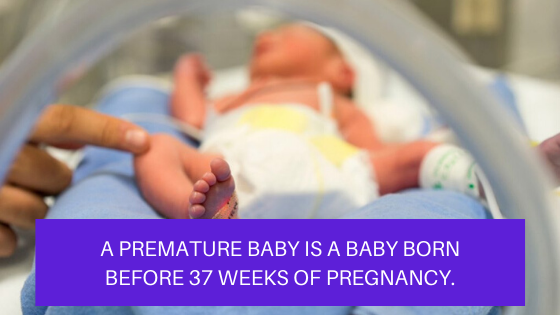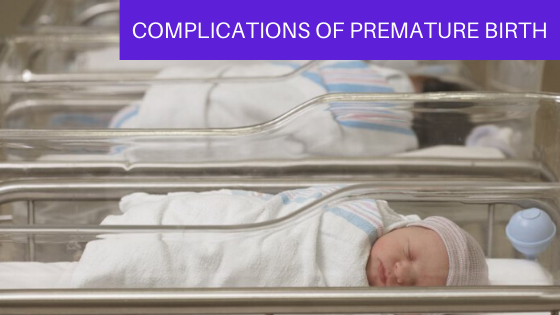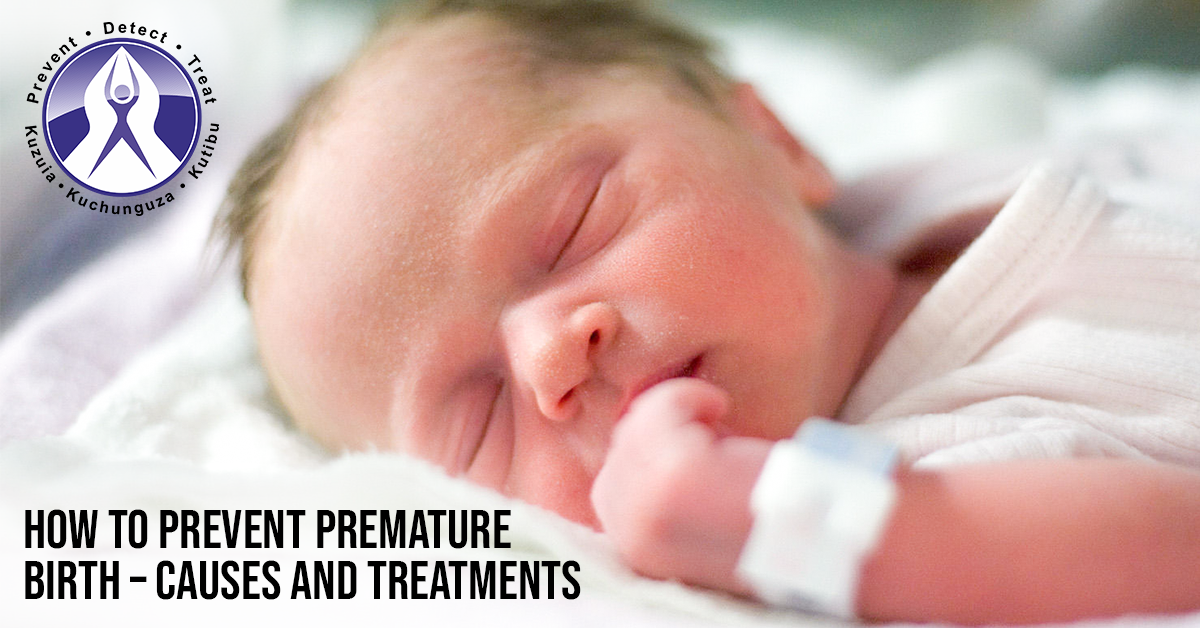How to Prevent Premature Birth – Causes and Treatments
738 viewsHow to Prevent Premature Birth – Causes and Treatments
According to the World Health Organization, over 15 million babies across the world are born prematurely every year. Prematurity is the biggest cause of death in children under the age of 5 years. Thankfully, medical and technological advancements have increased the survival rates of premature babies. However, many survivors face a lot of health problems immediately after birth and some may continue for a lifetime. So it’s extremely important to be aware of what causes preterm labor and how to prevent premature birth.
Defining Preterm Labor and Premature Birth
 Preterm labor begins earlier than 37 weeks of pregnancy. Preterm labor can lead to preterm birth, commonly known as premature birth. A baby born before the completion of 37 weeks of pregnancy may not be fully developed and is called a premature baby. Premature babies may face health problems at the time of birth so they are more likely to be kept under observation longer than babies born later.
Preterm labor begins earlier than 37 weeks of pregnancy. Preterm labor can lead to preterm birth, commonly known as premature birth. A baby born before the completion of 37 weeks of pregnancy may not be fully developed and is called a premature baby. Premature babies may face health problems at the time of birth so they are more likely to be kept under observation longer than babies born later.
Causes of Premature Birth
There are no definite known causes of premature birth. However, doctors have identified certain risk factors that may increase the probability of preterm labor and premature birth. Following are the most common risk factors of premature birth:
- Preterm labor or premature birth in the past
- Being pregnant with more than one baby
- Current or past problems in your uterus or cervix have some problems
- Being underweight during pregnancy
- Family history of premature birth
- A short gap between previous childbirth and current pregnancy
- Smoking, drinking alcohol or using harmful drugs
- Genitalia or genital tract infections
- High stress
- Conceiving with IVF (in vitro fertilization)
How to Prevent Premature Birth
Some risk factors like a family history of premature birth and being pregnant with multiple babies are unavoidable. However, you are in control of most of the risk factors. Here are some things you can do to reduce the chances of preterm labor and premature birth:
- Ensure that you have a healthy weight before you conceive a baby and get proper nutrition during pregnancy.
- Refrain from consuming any harmful substances like tobacco, alcohol or illicit drugs.
- Go for a prenatal care checkup as soon as you realize that you are pregnant.
- Be cautious and avoid getting infections.
- Take regular medications if you have chronic health conditions like diabetes, blood pressure, thyroid problems etc.
- Reduce stress during pregnancy.
- Take a gap of at least 18 months between giving birth and getting pregnant again.
Signs of Preterm Labor
Some signs in the body may indicate that your body might get into preterm labor. If you experience any of the following symptoms, you must inform and seek help from your gynaecologist:
- More vaginal discharge than usual
- Vaginal discharge is more watery, has more mucus or has some blood in it
- Pressure in your pelvis or lower belly
- A constant backache, even if it’s mild
- Belly cramps
- Diarrhoea
- Frequent contractions in the uterus and belly
- Your water breaks
If you show one or more of the above symptoms, your doctor may do a transvaginal ultrasound. It’s a pelvic test performed by doctors to confirm whether your cervix has started thinning and is likely to open for labor much sooner than the due date. Coupled with a few other tests, the pelvic exam helps the doctor determine whether your baby is going to be born prematurely. If the doctors see the possibility of premature birth, they may give you some treatment to prevent premature birth of your baby.
Treatment for Preterm Labour
If you go into preterm labor, your doctor may give you some treatments to stop your contractions and prevent potential health problems. While these treatments don’t guarantee the stopping of preterm labor, in most cases, they do help you stay pregnant for longer. They are also helpful in reducing the health risks for a baby born prematurely.
If you have preterm labor, you may be given 3 kinds of medications:
- Antenatal corticosteroids (also called ACS) to speed up lung development of your baby
- Antibiotics to fight infections that you or your baby may catch because of premature rupture of the sac around your baby in the womb
- 3 Tocolytics to slow down or stop preterm labor contractions
Apart from medications, your doctor may give you one or more of the following treatments to prevent premature birth of your baby:
- You may be given progesterone, a hormone that helps the uterus to grow during pregnancy and helps in preventing uterus contractions.
- Your cervix might be stitched (with cerclage) to prevent the baby from getting delivered too early.
- You may be prescribed long bed rests.
Complications of Premature Birth
 All babies born preterm are at a high risk of short term and long term health problems. Most common premature birth complications are:
All babies born preterm are at a high risk of short term and long term health problems. Most common premature birth complications are:
Anaemia
In the case of premature birth, some babies might not have enough healthy red blood cells. When there aren’t enough red blood cells to carry oxygen to the blood, the baby suffers from anaemia which may make it hard for other organs to function properly.
Breathing problems
Premature babies may experience pauses of 15 to 20 seconds in their breathing. This requires intensive care so the doctors may your baby on a ventilator in such cases. They are also at a higher risk of catching lung diseases namely Bronchopulmonary dysplasia (BPD) and Respiratory distress syndrome (also called RDS).
Infections
The immune systems of premature babies aren’t fully developed so they are very vulnerable to infections which can sometimes turn out to be life-threatening.
Jaundice
In some cases of premature birth, the baby’s liver may not be fully developed. Due to this, a substance called bilirubin builds up in the baby’s blood and this leads to jaundice.
Retinopathy of prematurity
When a baby’s retina doesn’t fully develop in the first few weeks after the birth, his/her eyes may be affected by retinopathy. In most cases, the retina heals by itself. However, in some prebirth cases, babies may have severe retinopathy which may cause vision problems later in life.
Preterm babies can also have lifelong complications like cerebral palsy, hearing impairments, poor cognitive abilities, and weaker overall health.
Special care for Premature Babies
 Premature babies are kept under observation in the hospital’s neonatal intensive care unit (NICU) and are given specialized care. The NICU consists of all the essential monitoring systems, respiratory and revival machines and 24 by 7 healthcare staff to provide pediatric care to the baby. The baby continues to receive specialized care until the doctor deems him/her fit for survival with NICU. Your doctor may discharge your baby from NICU after he/she:
Premature babies are kept under observation in the hospital’s neonatal intensive care unit (NICU) and are given specialized care. The NICU consists of all the essential monitoring systems, respiratory and revival machines and 24 by 7 healthcare staff to provide pediatric care to the baby. The baby continues to receive specialized care until the doctor deems him/her fit for survival with NICU. Your doctor may discharge your baby from NICU after he/she:
- Weighs at least 4 pounds
- Can be breastfed or bottle-fed
- Can maintain healthy body temperature without an incubator
- Gains weight consistently
- Can breathe easily
Best Premature Birth Treatments
At Regency Medical Centre, we understand the special needs of premature babies and provide them the best neonatal care. With a team of expert obstetricians and technologically advanced equipment, our obstetrics unit has achieved the highest survival rates and lowest complication rates in premature babies. We strive to ensure that you and your baby receive healthcare of the highest standard. The caregiving process from our professionals continues even after the baby is discharged from the hospital. Our support staff is at your service should you have any questions and concerns regarding your baby’s health.
To receive the best advice from our obstetrics and paediatrics department, book your appointment here.



